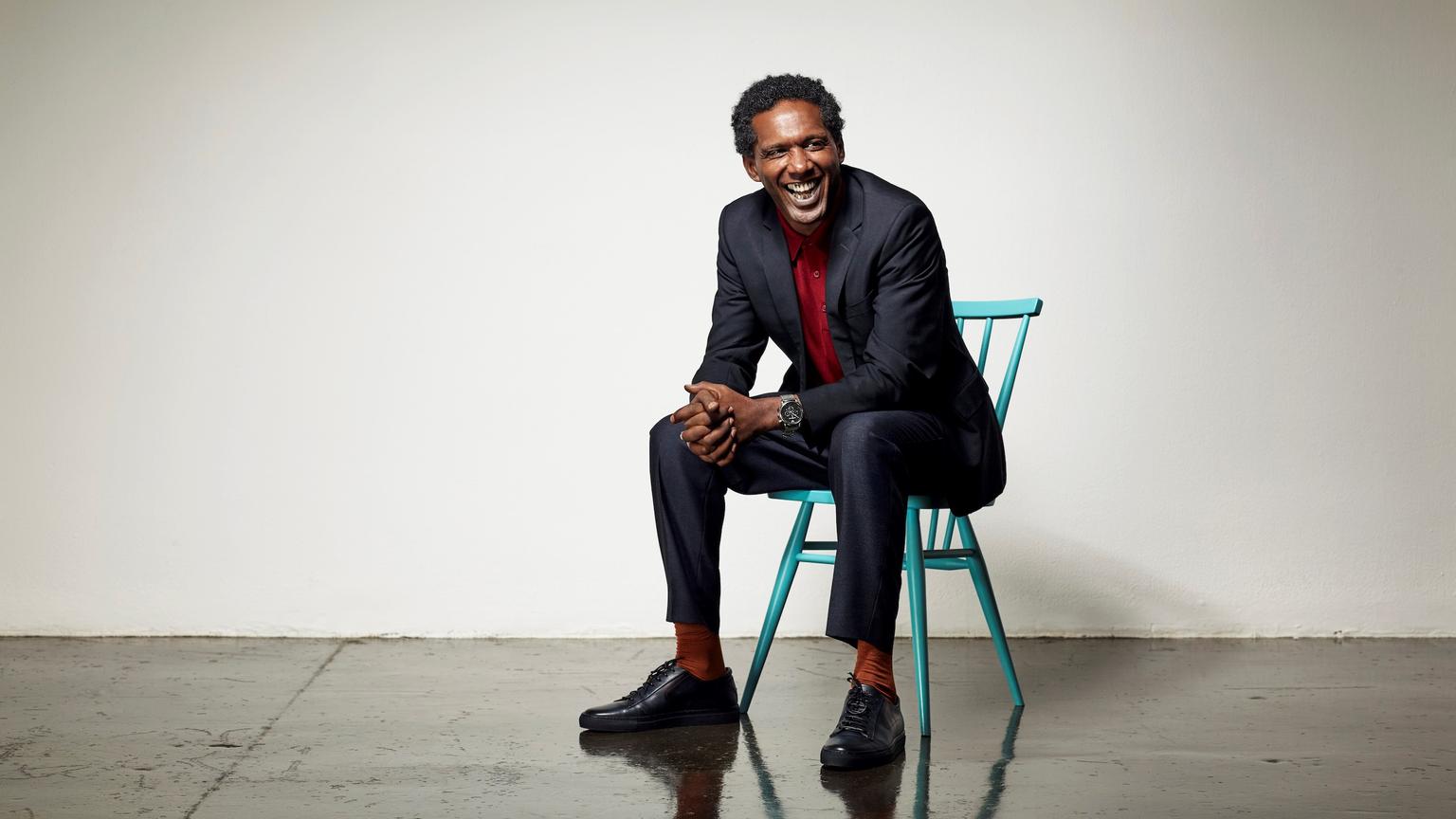Lemn Sissay: “That first experience of going to a museum blows your mind”

In support of our Energise Young Minds fundraising campaign, poet Lemn Sissay tells us about his earliest memories of visiting museums and why it’s so important that they’re able to provide life-changing experiences for every child.
Poet, playwright and author of My Name Is Why, an account of his childhood growing up in care, Lemn Sissay is a passionate advocate for the importance of the arts and creativity in a child’s life.
He is a trustee of the Foundling Museum in London, which tells the story of the UK’s first children’s charity, the Foundling Hospital, as well as Chancellor of the University of Manchester. His first book for children is published in 2022.
Here he talks to us in support of our new fundraising campaign, Energise Young Minds, which aims to raise £1 million to help museums provide creative opportunities for children, schools and young people.
Find out more about the campaign and how you can help us #EnergiseYoungMinds.
Art Fund: Why are museums and galleries so important to you?
Lemn Sissay: Museums and galleries are important to me because they are like time machines. They hold the past, the present, and they can predict the future.
They are incredible promoters of humanity now, in the past, and in the future.
Can you tell us about your first museum or gallery experience?
Do you know, I can’t really remember my first museum experience, but I do remember having books as a child, as a young boy, that had dinosaurs in them – and this concept that the world was inhabited by these incredible animals just blew my mind, as it does lots of boys and girls. And the museum is the place that I could go from the book to see an actual skeleton of an actual dinosaur, and that blew my mind.
But it’s true, isn’t it? That first experience of going to a museum blows your mind; it tells you that the world around you is an incredible place and that you are part of it, and that knowledge about that world actually feeds you as a human being, as part of the human race. You feel part of something that’s way bigger than you. The information is available, in real time. And that, as a child, that is exciting. Knowledge is exciting.
Why do you think it’s important for young people to have access to museums and galleries?
It is important for young people to have access to museums and galleries because knowledge is power. When I saw the mummies at the Manchester Museum as a younger person, I didn’t know at the time, until I went to the museum – believe it or not, this is true – that mummies are from Egypt, and Egypt is in Africa, and that is where my parents are from. Everything is connected.
It is important for young people to attend museums and galleries so that they can see, in 3D, that everything is connected, beyond the screen. The actual feeling of being close to a skeleton which is hundreds of thousands of years old is extremely powerful, and knowledge is power – the more a young person can know about the world that they live in, the more they can add to it.
What barriers do you think there are for young people in accessing museums?
I heard this term mentioned the other day, ‘threshold anxiety’ – it’s a great term. What I’d suggest you’d do, is go into a venue that you would not normally go into, OK? And feel what you feel when you go in. I think that’s some of what a young person might feel when they come into a museum or gallery. The question: Is this for me? Do I belong here? Is it welcoming? Is there a way that I should dress, is there a way that I should talk, should I whisper? Etcetera, etcetera. All of these things lead to threshold anxiety, so it’s very important that our museums consider that moment of connection between the young person and the gallery.
By the way, threshold anxiety is not a negative thing, because once you’ve got over the threshold, all of that anxiety releases into excitement, joy and creativity.
What do you think will happen to museums in the future if young people can’t connect with them now?
Museums aren’t like, “Come in little child, and enjoy things, don’t speak, don’t touch anything, or you’ll be in trouble!” You know, those days are long, long gone. They may be the days of the parents, but actually, now, young people are welcomed into museums and galleries. They are the future, and museums know that.
If museums and galleries do not connect with young people right now, then the museum or the gallery is dead. Because my experience of a museum is from when I was a young person, and that travels throughout my life. If we do not connect with young people right now, then the museum and the gallery experience will not enrich their adult lives.
Energise Young Minds is a fundraising campaign to raise £1 million for museum projects that inspire young people. Watch our film, featuring Lemn Sissay, to find out more.